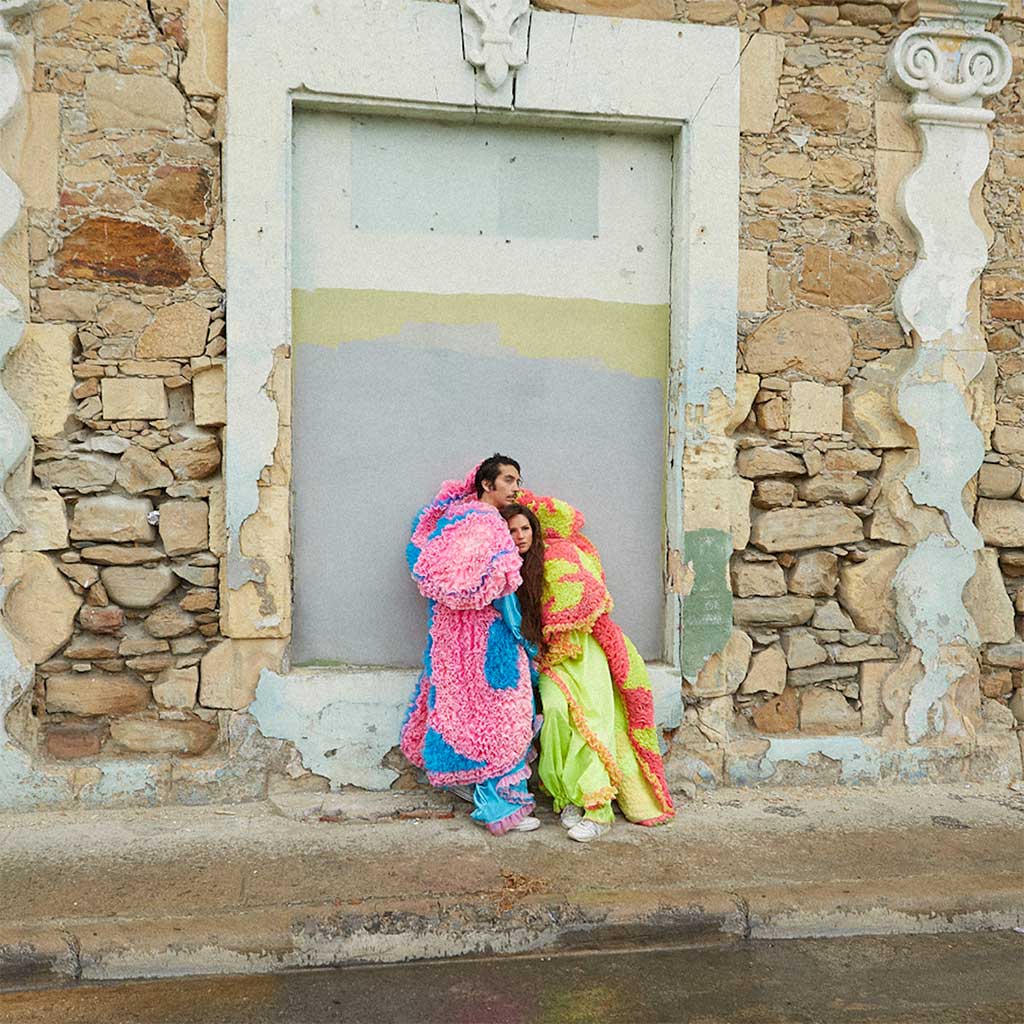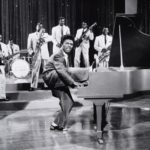“And although people would say it was a risk, wanting to come home was way stronger than any fear.” Returning to your roots can be a difficult and emotional time, but it can be even harder when your birthplace is a traumatized island that’s losing its once familiar soul. This is the case for Raquel Berrios and her husband Luis Alfredo Del Valle, the two Puerto-Ricans that make up the Spanish-language chillwave duo Buscabulla have returned to a homeland that is still suffering from the impacts of 2017’s Hurricane Maria – the worst recorded natural disaster to hit the U.S territory – on a social, cultural and political scale.
Buscabulla have been releasing music since 2014 but this is the once-New York-based duo’s debut LP and as the title hints at (Regresa is Spanish for going back) their brave first entry in their album discography which, along with a documentary film that they are making – reflects their experience returning to Puerto Rico. A region that although has its destabilising faults, Berrios and Del Valle accept as their true identity.
Regresa is entirely in Spanish, which although prevents a significant amount of listeners from comprehending the lyrics, it understandably keeps the authenticity of the group and furthermore suggests that the lead vocalist Raquel Berrios is singing directly to the Puerto Rican residents, hoping that it has a influential difference.
Opener Vámono (Let’s Go) draws us straight into the heart of Puerto Rican culture. Rattling street drums are paired with a looped single synth key to make the song sound both fresh and traditional. The song’s music video embraces one of the island’s historical parades (Festival de las Máscaras) through it’s clothing and floats. As Buscabulla try to keep an element of Puerto Rican culture alive, they are fully aware that there’s a decline in the American territory’s population as many former residents leave for mainland U.S. Raquel Berrios sings: “Uno que viene otro que se va”, which translates as “One who comes another one leaves.”
Moreover ‘Club Tú y Yo’ (Club you and me) is a lamentable song that also touches upon the disappointment of returning to your birthplace and expecting a welcome banner and instead finding that most of your friends have left and the community has dispersed. A similar study to Ioanna Gika‘s Thalassa from last year (although that was about Greece). The track is perhaps also a pondering on Latin identity – not solely Puerto Rico – and how Latin-Americans can be confused at where they belong.
When making the decision to leave the comforts of New York, Berrios turned to a Puerto Rican entertainment icon for advice and direction for the next stage of her life. Berrios performs ‘Nydia’, a song that’s a tribute to Nydia Caro. Admiring Caro’s ability to balance her international fame, singing career in 70’s and 80’s with motherhood (relevant now that Berrios has a daughter), whilst maintaining an elegant aura.
It’s the second time Buscabulla have dedicated a song to a Puerto Rican legend, following on from 2017’s sensual-disco Tátaro (about influential salsa performer Frankie Ruiz). The now 71-year-old Nydia Caro herself provides a motivational speech to Berrios mid-way through the song: “Tú no puedes ver las estrellas si, tú no tienes una una noche oscura (“You can’t see the stars, if you don’t have a dark night“. Caro’s words perhaps influenced Raquel Barrios to set up the charity PRIMA (primafund.org) to help fund Puerto Rican artists in the wake of Hurricane Maria.
Regresa also has an interesting production. It has the sense of Buscabulla reflecting upon past Puerto Rico with lo-fi samples of Latin sounds, whilst bringing it into modern day scene with fresher copies of that style of percussion. ‘NTE’ has a foggy looped drum rolling behind Raquel Berrios’ clear vocals and a glistening keys, whilst a warbled effect borders the two levels of stereo. The song is Buscabulla acting defiantly against those people who told them not to return to Puerto Rico. Interlude ‘La Fiebre’ and the Little Dragon-reminscent ‘El Aprieto’ (based on a Spanish phrase about hardship) have snippets of Latin percussion at a mono distance. The latter also shows Berrios singing in a more vibrant manner, displaying her range away from her regular mellow manner.
‘Mío’ (Mine) has a more subtle approach to the street percussion sound compared to the aforementioned ‘Vamono’ with it’s tin strokes and mixes it curiously with a repeated sample of laughter in the last chapter. The song is importantly about taking ownership of your culture, after the couple noticed wealthy foreigners buying Puerto Rican land. Another display of Buscabulla’s shock-turned-into-rebellion perspective of their home territory.
It has been a long six year wait for a full length album but Buscabulla’s first LP Regresa doesn’t disappoint. A surprisingly powerful, meaningful and focused record that will both inspire the remaining Puerto Rican community to rediscover their purpose and take action, as well making the rest of the world take note of Puerto Rico’s previously ignored and undocumented problems.




